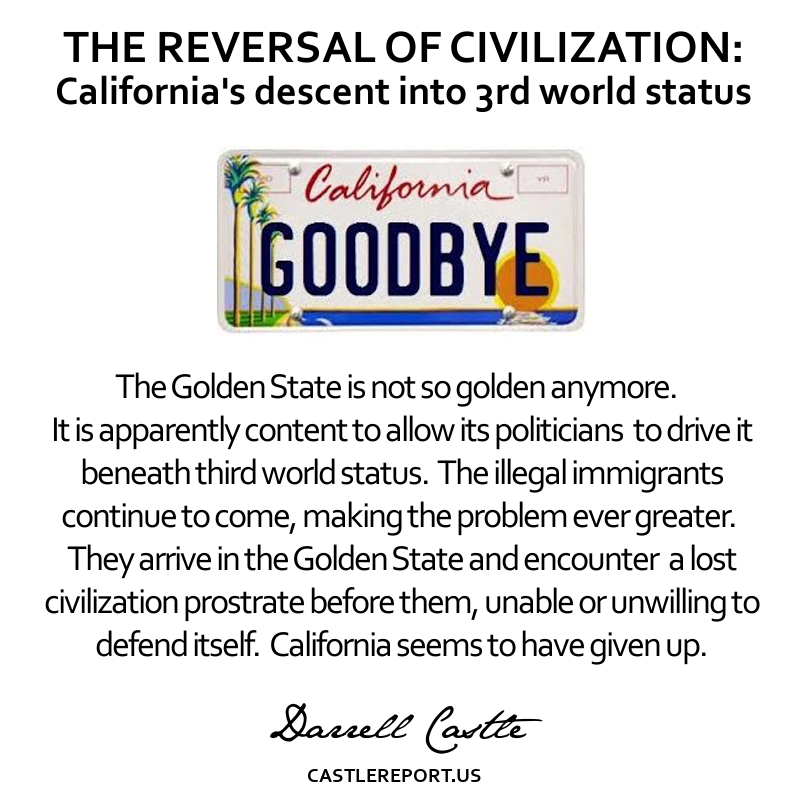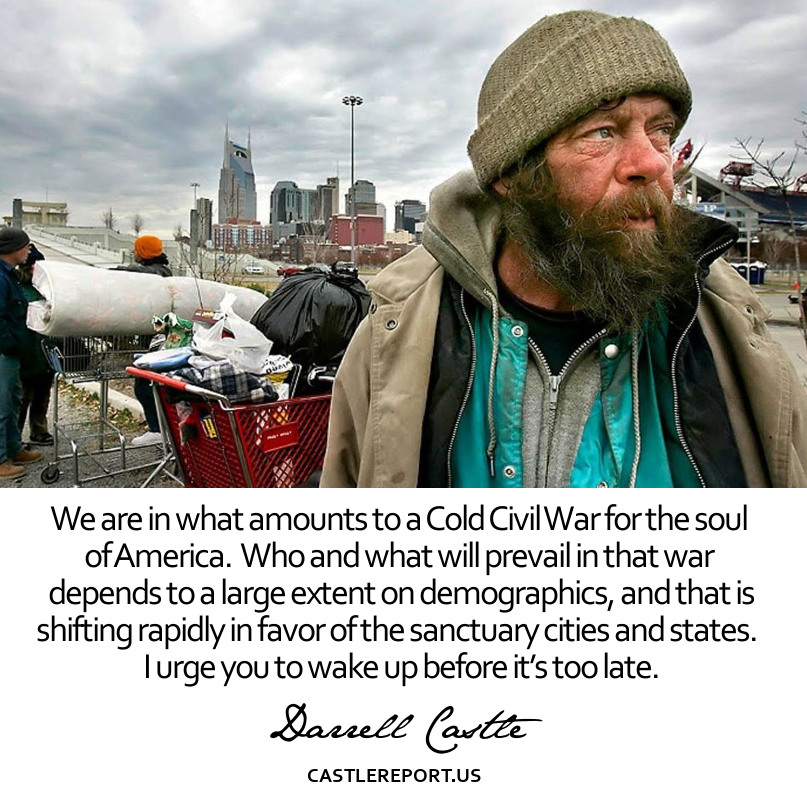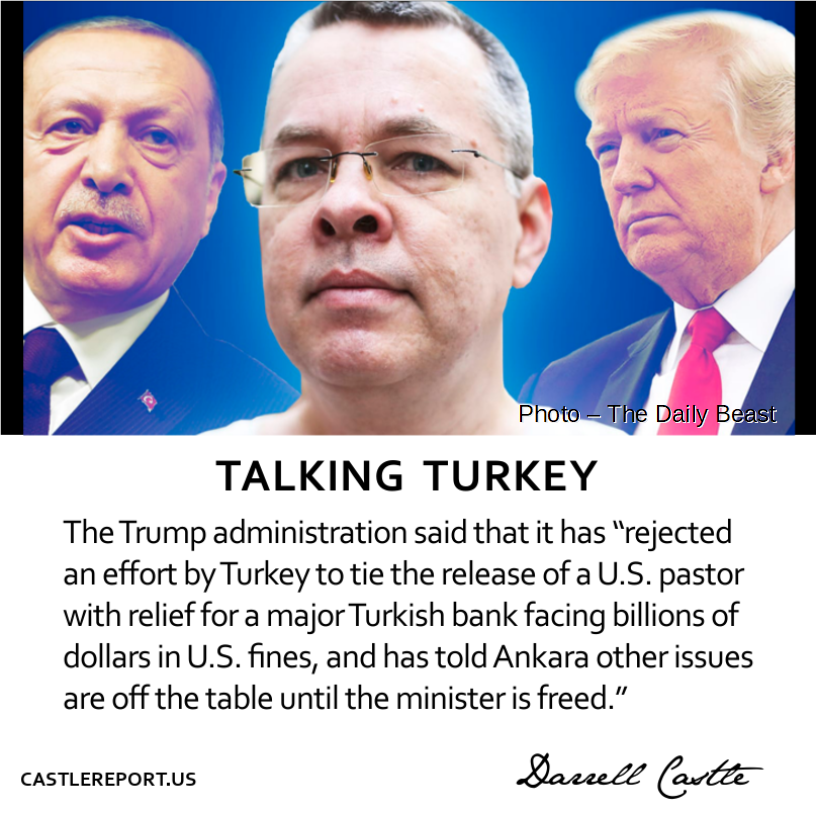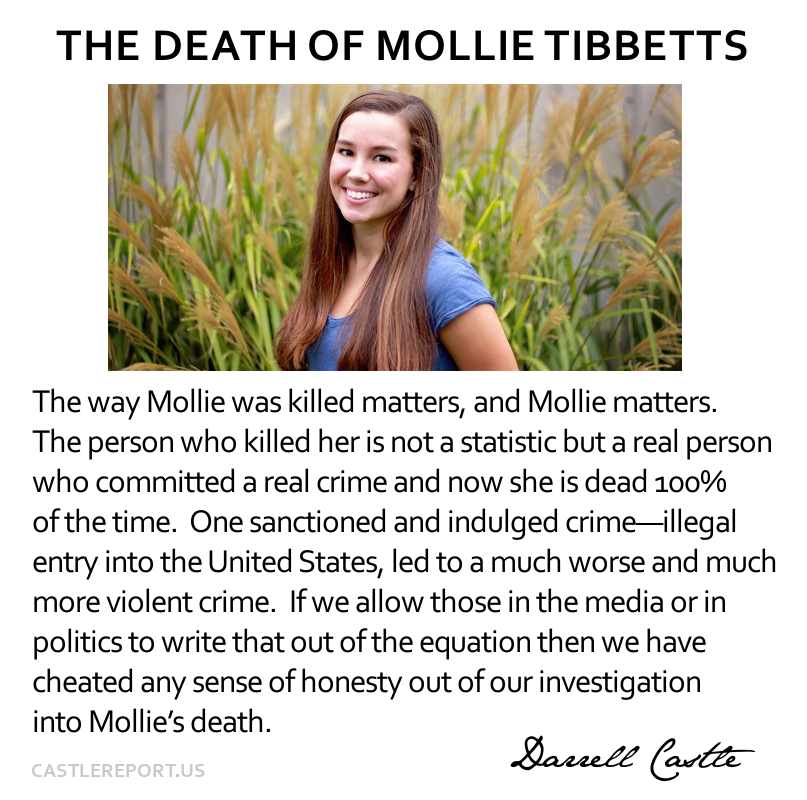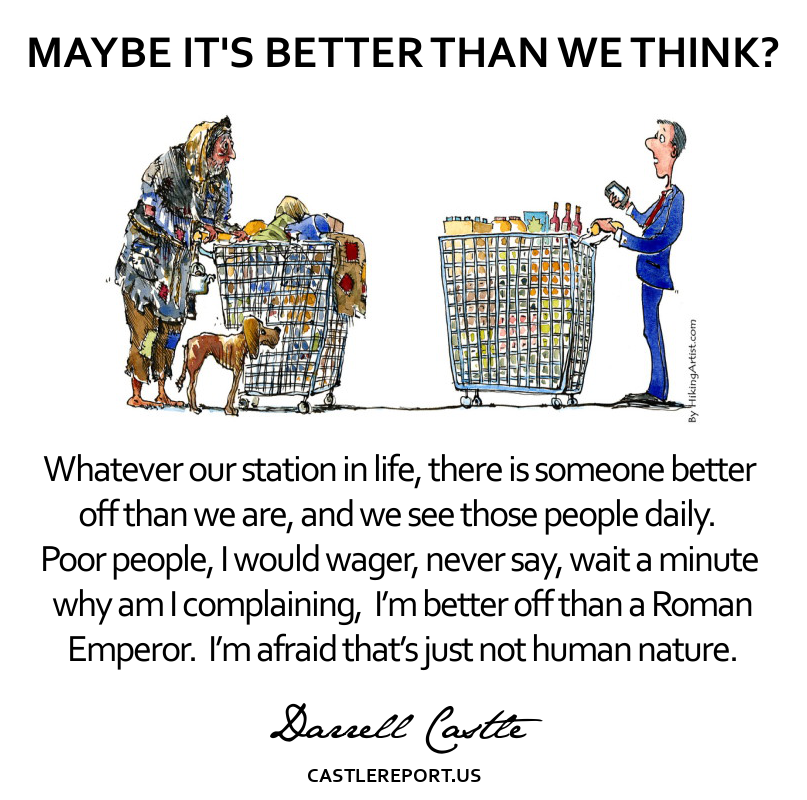
Maybe It’s Better Than We Think
Podcast: Download
Darrell Castle talks about the advantages that Western Civilization has afforded us and how we always compare ourselves to those who we consider to have a higher standard of living than we do.
Transcription / Notes
MAYBE IT’S BETTER THAN WE THINK
Hello, this is Darrell Castle with today’s Castle Report. Today is Friday, February 16, 2018, and on today’s Report I will be talking about some of the many advantages that we have in our world today. This is really just a continuation of my series of Reports on the advantages of Western Civilization and reasons why it should not be destroyed.
My inspiration for this story came from a trip to Phoenix, Arizona last week. I was returning home to Memphis on Sunday so as usual the crowds, the airport security, the narrow seats, the endless lines all served to remind me that everything is bad today. Everything just seemed so dark, gloomy, and depressing. The final straw came in waiting for my luggage at the Memphis airport for 30 minutes while Tokyo Rose blasted out her relentless propaganda directly into my left ear from the CNN announcer on airport TV at baggage claim.
Today we are constantly reminded of just how terrible things really are. All we read are stories about how all our politicians, business leaders, entertainers, and even the clergy, are corrupt at best and at worst they are racist, misogynistic, homophobic, Nazis. Very depressing indeed, but then I arrived home from the airport, picked up my copy of the Wall Street Journal and there it was; an article by Steven Pinker entitled “The Enlightenment is Working.” In response then, I offer this report on some of the good things in our world most of which are the result of “Western Civilization”.
I have often used the expression that a poor person in America today lives better than a Roman emperor lived in the 1st century and I will attempt to show you why, thanks to Western civilization, that statement is still true.
From the Wall Street Journal, “For all their disagreements, the left and the right concur on one thing: The world is getting worse…They look back to various golden ages when America was great, blue-collar workers thrived in unionized jobs, and people found meaning in religion, family, community and nature.” We pine away, in other words, for the good old days that never existed or were even worse.
Let’s look at and attempt to measure human achievement over time, over decades, and centuries. We don’t measure our current condition by saying we are better off than ancient Romans, however, because this is 2018 America not, 1st century Rome. We can, however, look at some numbers as a guide, for example; In the U.S. just three decades ago, our annual homicide rate was 8.5 per 100,000 and now it is 5.3. Per 100,000. Eleven percent of Americans fell below the poverty line 30 years ago, and today only three percent do.
In fact, the bottom half of American society today lives in relative abundance once reserved for the very top. Before air conditioning, heads of industry and even Presidents lived in sweltering heat like everyone else. Today 80% of poor households enjoy air-conditioning. Through the 1930’s only the rich had an automobile but today 75% percent of poor households have at least one car, truck or both. Just a short time ago TV was a luxury for the very affluent, and even for them only a couple of poor quality channels. Today virtually all poor households have at least one television, 40% own TV’s with plasma screens, and two-thirds have cable or satellite.
Half of the poor own a personal computer and virtually all have cell phones. The search to obtain food once occupied most of the spare time of people but today the poor have more of it than they need. Obesity was once a sign of luxury, but today it is a sign of poverty.
It’s not just America either because, as the Wall Street Journal puts it, “The world is giving peace a chance. During most of the history of nations and empires, war was the natural state of affairs, and peace a mere interlude between wars. Today war between countries is obsolescent, and war within countries is absent from five-sixths of the world.”
There have been many zigzags along the way, as the journal puts it, but the happy gifts of the last two centuries are the cumulative gifts of the brain children the Enlightenment spawned. That’s the journal’s explanation of our progress but I prefer to credit Western Civilization for it.
Disease has been decimated by vaccines, sanitation, antibiotics and other advances in medicine and public health. Famine stanched by crop rotation, synthetic fertilizers, farm machinery, and selective breeding. Poverty slashed by education, markets, global trade, cheaper clothing, social programs for the old, young, sick and unlucky.
Violent crime has been tamed by the rule of law as opposed to the code of vendetta. The spread of democracy has marginalized war and, education, mobile, and connected people have blunted oppression and discrimination.
Where did all this progress come from? The Journal calls it the Enlightenment. Our ancestors replaced dogma, tradition, and authority with reason, debate, and institutions of truth seeking. That, I remind you, is just Western Civilization by another name, but the point is, the world is growing safer according to the Journal.
Having said all that I will also say this: let’s not get carried away here. Remember we do not judge ourselves by the standards of yesteryear, no, the poor man of today doesn’t look at the poor man of decades or centuries ago for a relative fix on his position. The poor man of today compares himself to the rich man of today. You may be familiar with the research that reveals that when people are asked, whether they would rather make $100,000 per year if their neighbor made $125,000 or $75,000 per while their neighbor made $50,000, the vast majority choose the $75,000. That comparison which is really just envy creates many of our problems today.
Whatever our station in life, there is someone better off than we are, and we see those people daily. Poor people, I would wager, never say, wait a minute why am I complaining, I’m better off than a Roman Emperor. I’m afraid that’s just not human nature.
The separation between rich and poor today is vast. The 1% continue ever upward while the majority of the rest are stagnant or even falling behind. However, the poor man of today gets to at least watch how the rich live. He gets to sit in his air-conditioned den, watching his plasma TV, while getting fat on junk food, and in his poverty he compares himself to the Kardashians, or to Gates, Bezos, and the rest. It seems to be the nature of us to focus not on what we have but on what we don’t have. Anyone different is a rare specimen indeed, and worthy of water cooler conversation.
As Tolstoy said in “War and Peace”, “Money. When you don’t have it, you wonder where it’s coming from and when you have it ,you wonder where it’s going.”
The comparison between the 1% and the rest is often unsettling and devastating for people. According to Charles Hugh Smith, in his article “The Pie is Shrinking for the 99%”, “Wages of those employed full time are up a gargantuan $4 a week in the 18 years since 2000. Let’s see, $4 times 52 weeks a year, by golly, that’s a whole $208 a year.” If we adjust real wages by real-world income, we find wages have actually declined since 1980. In the meantime assets have soared in value, and those who own them have done very well indeed, but those who must trade their labor for dollars, not so much.
Households with two regular jobs have been priced out of the housing market in cities such as Seattle, New York, San Francisco and Los Angeles. To really succeed you must own appreciating assets or be able to borrow large sums of almost interest free money to acquire them.
Is it any wonder that most households have no savings and live pay check to pay check? Most households don’t earn enough to save much and those that save say $10,000 learn that the house they wanted to buy just went up by $50,000. In the high rent areas I mentioned, unless you bought a home 20 years ago, forget about it even if you make triple the median income. This is the reality of many metropolitan areas of the country today, but that is where the action is for our millennial high achievers.
Labor’s share of the Gross Domestic Product (GDP) is on the decline and has been since about 1970. The pie is shrinking for many and that increases inequality. How will all this inequality end; badly I predict, in social disorder.
On second thought I guess things are just as bad as I thought they were.
At least that’s the way I see it,
Until next time folks,
This is Darrell Castle,
Thanks for listening.
